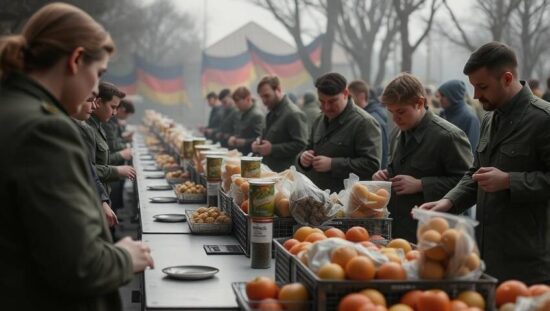Many tables in Germany must ration the distribution of food items. Andreas Steppuhn, the chairman of the Tafel umbrella organization, told the “New Osnabrück Times” that many of the volunteer-run institutions have reached their capacity limits.
“One third is trying to help by temporarily stopping intake or using waiting lists to process the backlog as quickly as possible. 60 percent of the tables need to reduce the amount of food distributed.” This is done to continue helping as many people as possible. The background is the partly significantly increased number of needy individuals.
Since the beginning of the war of aggression on Ukraine, the tables have seen a 50 percent increase in customers on average – they currently support around 1.6 million people in need, Steppuhn said. The cost of living in Germany has risen, but pensions and wages have not increased at the same rate, which has led to growing poverty.
Steppuhn called on politics to seriously combat poverty. “Tables cannot absorb and take over what the state has not done for decades.” The possible value-added tax reduction on food items named by Chancellor Olaf Scholz is a first conceivable step. “But that’s not all.





